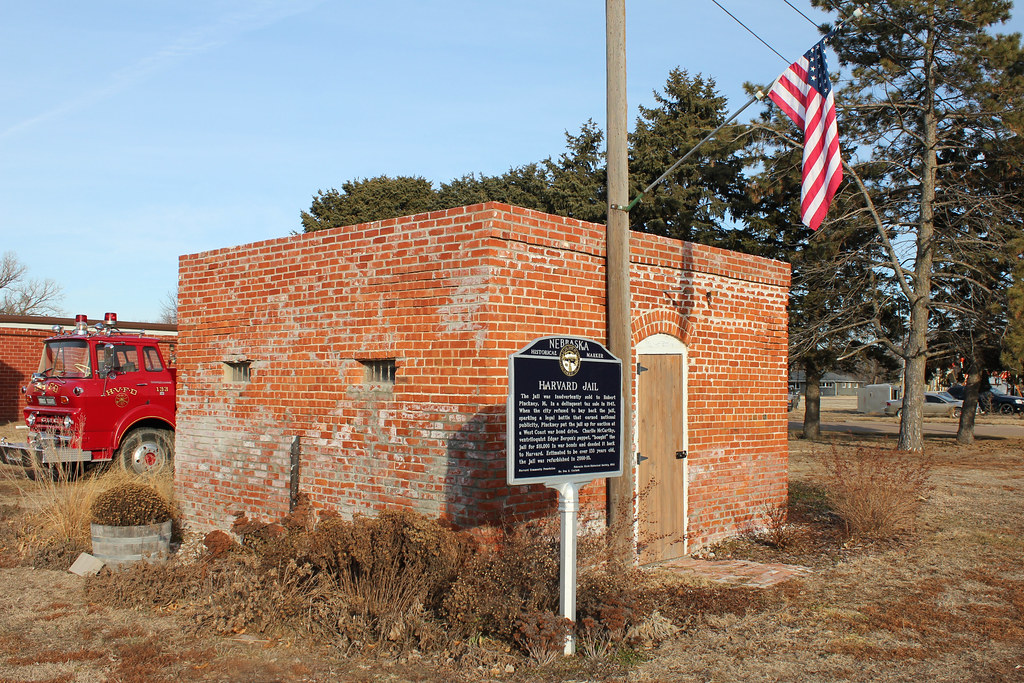It takes quite a stretch of imagination to call Harvard a city. With an area just over half a square mile and population of about one thousand, Harvard, in Clay County, Nebraska, is little more than a town. Nobody ever goes there unless they have family, friends, or business. But if you are passing through Clay County, take a detour and make a quick stop at Harvard in order to marvel at a nondescript two-room brick building and chuckle at the historic marker that describes how this small structure put this Nebraska community on the map.

Harvard’s jailhouse. Photo: Jimmy Emerson/Flickr
Here’s the story:
In 1943, the city was disposing off several unused plots of land, selling them at only $1.50 a piece, when 16-year-old Robert Pinckney, son of the local physician, decided he wanted some so that he could build victory gardens during the summer. When Robert was looking through the list of plots on sale, he noticed that the city had accidentally included the plot upon which the jailhouse stood as one of the properties for sale. As any good and responsible citizen would have done, Robert informed the city council about their mistake. But they only laughed at him.
Robert decided that the best revenge would be to buy the plot, which he did.
And so the sale was made and the deed papers signed, and still the city refused to admit their mistake. They pretended as if nothing happened, and continued to house criminals in the jail. Once Robert put a lock on the jail, but the city officials smashed it and threw him off the premises.
So Robert hired a lawyer and sued the city for owned rent. The city agreed but moved that Robert would have to raise his sidewalks, trim trees and cut weeds or they would take action and charge costs to the property. At one point Pinckney threatened to tear down the jail.

Finally, the city agreed to buy back the jail, but because Robert was underage at that time, the law prohibited him from deeding the property to anyone. He would have to wait till 21.
The story was picked up by the media and soon it was all over the nation. The Associated Press and Time magazine ran a feature on him. Someone offered Robert $150 for the jail. Another offered to pay him $35 per month.
On the suggestion of a recovering sailor, Robert decided to put the jail up for auction to help further the war bond drive. Charlie McCarthy, ventriloquist Edgar Bergen’s famous dummy, bought the jail for $10,000 of war bonds. After all the publicity had died, the jail was quietly deeded back to the city.
The story might be embarrassing for the city council, the selling of the jail did have two benefits. For one, it made Harvard famous, and second, the sale benefitted the nation by contributing an enormous amount of money to the war effort.
Today, the jail house still stands on the same site, although it’s no longer use to incarcerate criminals.

Photo: George A/Google maps contributor

Photo: Shelby Miller/Google Maps contributor












Comments
Post a Comment